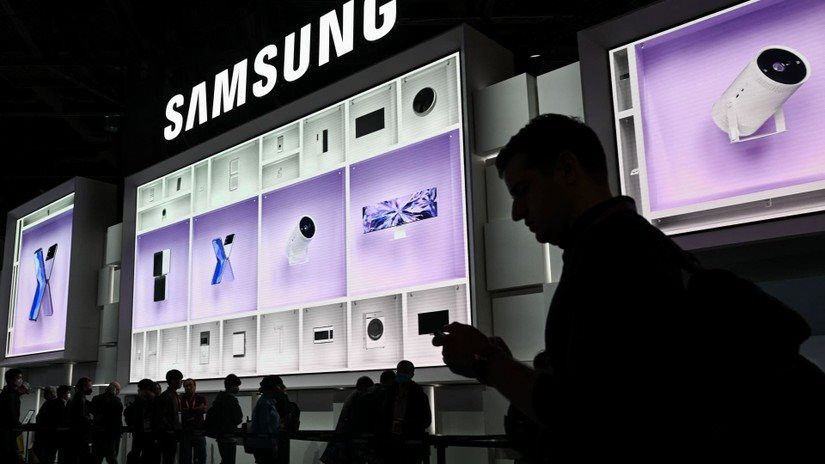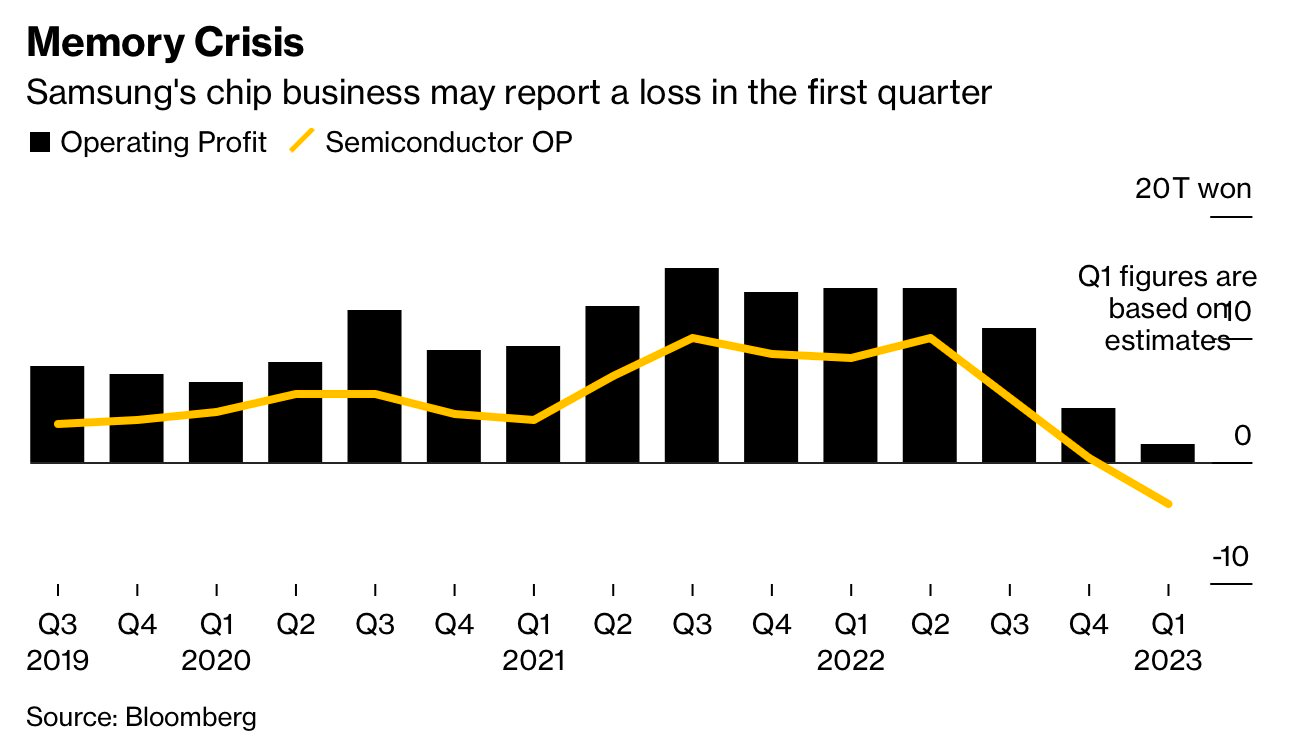Samsung cuts production of one of its most important products, its ambition to capture market share is ‘lost’ when it forecasts a 96% drop in profit
- Tram Ho

Specifically, Samsung’s operating profit fell 95.8% to 600 billion won ($450 million) in the first three months of this year. Meanwhile, analysts’ estimates are 1.4 trillion won. Samsung’s revenue also fell to 63 trillion won. It is estimated that Samsung lost about 3 billion USD for chip production.
Samsung said it will cut chip production to a reasonable level. This is the move that the company’s competitors have been waiting for, after high inventories sent prices and profits plummeted. The chipmaker has delayed production cuts in recent months, in part to gain market share from rivals.
“According to the assessment, the company has secured sufficient quantities to accommodate future changes in chip demand,” Samsung said in a statement. We are adjusting to reduce production to a reasonable level, focusing on products that have enough additional supply, as well as optimizing the operations of the existing line.”

Estimated operating profit of Samsung and semiconductor business for the quarters.
Samsung’s inventory rose to 52.2 trillion won at the end of last year, after the company continued to produce despite slumping demand. In contrast, competitors such as SK Hynix and Micron Technology have reduced production to free up old chip stocks.
However, Samsung signaled it was still not backing away from its aggressive manufacturing strategy. “We are cutting short-term production plans, but as demand is solid in the medium to long term, we will continue to invest in infrastructure to strengthen our leadership position,” the company said. ”
South Korea’s largest company previously warned that first-quarter profits would shrink due to slowing sales. However, chip prices fell more than expected, due to sluggish demand for a wide range of electronic devices, from smartphones to computers, as many consumers and businesses feared recession risks. Despite reopening, the Chinese market has not recovered as quickly as some predicted.
The pandemic has devastated the semiconductor manufacturing industry, leaving many of the largest companies struggling to keep up with market changes. Demand skyrocketed when consumers had to stay at home to “avoid the epidemic”, they rushed to buy new computers and phones. This trend quickly reversed when restrictions were lifted and the global economy suffered major shocks, such as inflation, rising interest rates and the Russia-Ukraine conflict.
Micron, the largest U.S. chipmaker, said inventories were shrinking and predicted a gradual improvement in supply and demand. Meanwhile, Hynix executives said chip suppliers’ output cuts will take effect in the second half of the year and help boost product prices. However, the speed of recovery also depends on companies in the industry cutting supply.
Currently, the Korean “giant” still does not withdraw its capital and production spending plans. In the past, the company chose not to slow down its expansion during tough times, in order to gain market share from competitors.
Samsung is spending hundreds of billions of dollars building the world’s largest chip complex in South Korea and an open facility in the US. The group also receives support from the US and South Korean governments to boost domestic production.
One reason Samsung is still standing despite its profit drop in the last quarter is the newly launched Galaxy S23 series. According to analyst Kim Kwangjin of Hanwha Investment & Securities, sales of this phone line reached about 11 million units in the first three months of the year, up 50% compared to the previous model. He estimated that the profit of the smartphone business increased 123% from the previous quarter to 3.3 trillion won.
According to Bloomberg, Samsung’s supply cuts will likely increase chip prices and this is an important step to recovering profits. However, it is still unclear how the US-China tensions over semiconductors may affect in the coming years.
Refer to Bloomberg
Source : Genk
